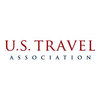Two Dozen Industry Groups Release Blueprint To Reopen International Travel
WASHINGTON : A coalition of 24 trade organizations representing a large and diverse swath of the U.S. economy is renewing urgent calls to lift restrictions on international visitation to the United States, and on Wednesday released a policy blueprint for reopening borders safely.
Called “A Framework to Safely Lift Entry Restrictions and Restart International Travel,” the document identifies policy principles for finally welcoming international visitors back to the United States while keeping health and safety as the top priority.
“The travel industry agrees that being guided by the science is absolutely the correct approach, and the science has been telling us for some time that it’s possible to begin to safely reopen international travel,” said U.S. Travel Association President and CEO Roger Dow. “Our document continues to prioritize safety while providing a roadmap for solving for the billions of dollars in economic damage resulting from the continued restrictions on crossing our borders, in particular from allied countries with similar vaccination rates. We have the knowledge and the tools we need to restart international travel safely, and it is past time that we use them.”
For each week that travel restrictions remain in place, the U.S. economy is losing $1.5 billion in spending just from Canada, the European Union and the U.K.—enough money to support 10,000 American jobs.
“U.S. airlines have been—and continue to be—strong advocates for a risk-based, data-driven approach to safely resuming international travel as laid out in the blueprint,” said Airlines for America President and CEO Nicholas E. Calio. “We have leaned into science throughout this crisis, and research has consistently determined the risk of transmission onboard aircraft is very low. In fact, the Harvard Aviation Public Health Initiative concluded that being on an airplane is as safe if not safer than routine activities such as eating in a restaurant or going to the grocery store. The science is clear—it is time, if not past the time, for the U.S. Government to take action and reopen travel between the U.S. and low-risk countries.”
Some of the guidelines in the policy framework:
- Reserve entry restrictions for only the highest-risk countries.
- Replace all other blanket travel restrictions with a framework of entry protocols based on a country-by-country and individual traveler risk assessment.
- Ensure the framework is easy to understand, communicate, and implement.
As immediate steps toward reopening, the blueprint urges the federal government to:
- Quickly lift entry restrictions and reopen travel between the U.S. and the U.K., given the two countries’ similar vaccination records. Research from the Mayo Clinic shows the risk of a person infected with COVID-19 boarding a flight from the U.K. to the U.S. is 1 out of 10,000. The same research shows that the risk of an infected passenger transmitting the virus to another passenger flying from the U.K. to the U.S. is even lower, at 1 out of 1 million passengers.
- Allow expedited entry into the U.S. for fully vaccinated individuals from non-high-risk countries.
- Ease entry restrictions by July 15, 2021, when the U.S. is forecast to achieve widespread immunity and sustained declines in infections and hospitalizations.
Along with U.S. Travel, signatories to the blueprint include: Airlines for America; Airports Council International – North America; the Aeronautical Repair Station Association; the Aerospace Industries Association; the American Association of Airport Executives; the American Gaming Association; the American Hotel and Lodging Association; the American Society of Travel Advisors; American Tours International, LLC; the Cargo Airline Association; the General Aviation Manufacturers Association; the Global Business Travel Association; the International Air Transport Association; the International Association of Amusement Parks and Attractions; the International Franchise Association; the International Inbound Travel Association; the National Air Carrier Association; the National Restaurant Association; RTCA; the Regional Air Cargo Carriers Association; the Regional Airline Association; The Travel Technology Association; and the U.S. Chamber of Commerce.
Dow stressed that policies should remain agile to allow for shifts as circumstances warrant. Variants of concern bear watching, he said—but he also reminded that the Delta variant is already present in the U.S., and that it is effectively managed by available vaccines and resulting in very low rates of hospitalization.
“Restrictions on international travel are no longer what is protecting us from outbreaks of the virus,” Dow said. “In that vein, the travel industry continues to urge everyone who is eligible to receive a vaccine—they have been effective beyond expectation, and they are what is going to allow our lives to go fully back to normal and put this pandemic in the rearview mirror for good.”
Click here to read the full policy blueprint.
About U.S. Travel Association
U.S. Travel Association is the national, non-profit organization representing the $1.3 trillion travel industry, an essential contributor to our nation's economy and success. U.S. Travel produces programs and insights and advocates for policies to increase travel to and within the United States. Visit ustravel.org for information and recovery-related data.
Chris Kennedy
+1 202 465 6635
U.S. Travel Association
